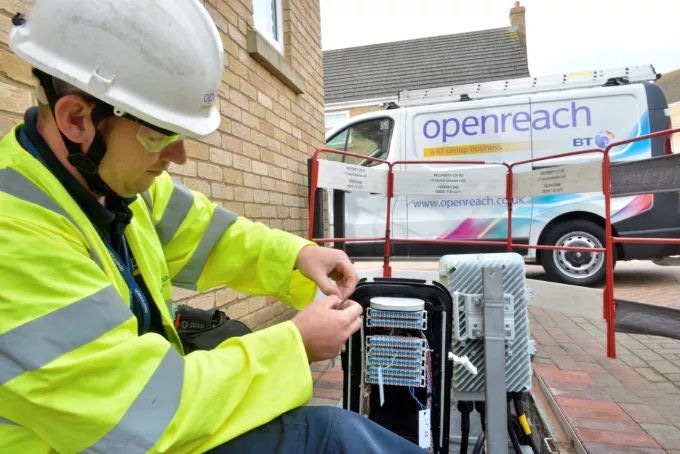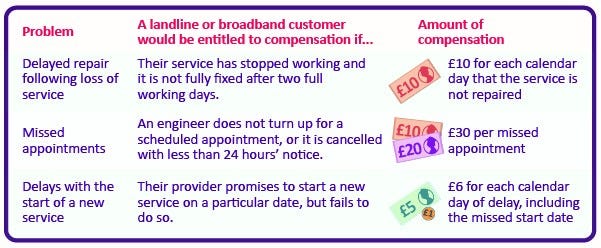UK telecoms regulator Ofcom has proposed a system of small fines to be automatically paid by landline providers when they drop the ball on service.
March 24, 2017

UK telecoms regulator Ofcom has proposed a system of small fines to be automatically paid by landline providers when they drop the ball on service.
As the table below shows, each individual fine would be quite small – certainly not sufficient to adequately compensate users for the inconvenience and distress resulting from customer service failures and the resulting loss of connectivity. But if the provider is a serial offender on a wide scale those fines could start to add up, with Ofcom saying it could add up to £185 million per year.

Lindsey Fussell, Ofcom’s Consumer Group Director, said: “When a customer’s landline or broadband goes wrong, that is frustrating enough without having to fight tooth and nail to get fair compensation from the provider,” said Ofcom’s Consumer Group Director Lindsey Fussell.
Consumer commentators seem to think this is a good idea. “This proposal will act as a powerful motivator to ensure broadband and landline providers fix problems efficiently and keep their promises,” said Dan Howdle of cable.co.uk. “It will ensure that investment in prompt maintenance and customer support becomes a preferable option to letting customers down.”
“We shouldn’t pretend the level of compensation proposed – £30 per missed appointment for example – will be enough to make up for missing a day’s work,” said Richard Neudegg of uSwitch. “But, even at a modest level of compensation per user, the collective financial burden on providers will increase the pressure to improve service.”
Virgin Media, however, which is one of the providers that would be liable for these micro-fines, was less fulsome in its praise.
“It’s important that customers are treated fairly when services can’t be delivered, but this is best achieved through a robust industry-led approach,” a VM spokesperson told Telecoms.com. “The industry is working together on ambitious reforms that would incentivise communications providers to compete to provide customers with a better service, while also setting minimum standards that providers would have to meet.”
BT/Openreach had yet to respond to our request for comment at time of writing. One likely consequence of this proposal will be to further inflame tensions between Openreach and its customers as they bicker about whose fault a given customer service failing is, and thus who should pay. This matter is explored extensively in the Ofcom consultation document.
The document also makes it clear that BT and Sky also support the industry-led approach referred to in the VM comment. In other words: “We’re on it, Ofcom, so just calm down.” Ofcom seems to be enjoying its new stridence, however, and has apparently decided the UK landline sector is incapable of voluntarily doing the right thing and has rejected that idea.
This ultimately seems like another way of browbeating Openreach, on top of all the other concessions Ofcom has forced out of BT. The consultation ends on 5 June 2017 and the big providers will presumably offer some additional concessions by that time. Recent history suggests, however, that Ofcom is unlikely to settle for anything less than it proposed today.
About the Author(s)
You May Also Like








.png?width=300&auto=webp&quality=80&disable=upscale)


_1.jpg?width=300&auto=webp&quality=80&disable=upscale)


.png?width=800&auto=webp&quality=80&disable=upscale)